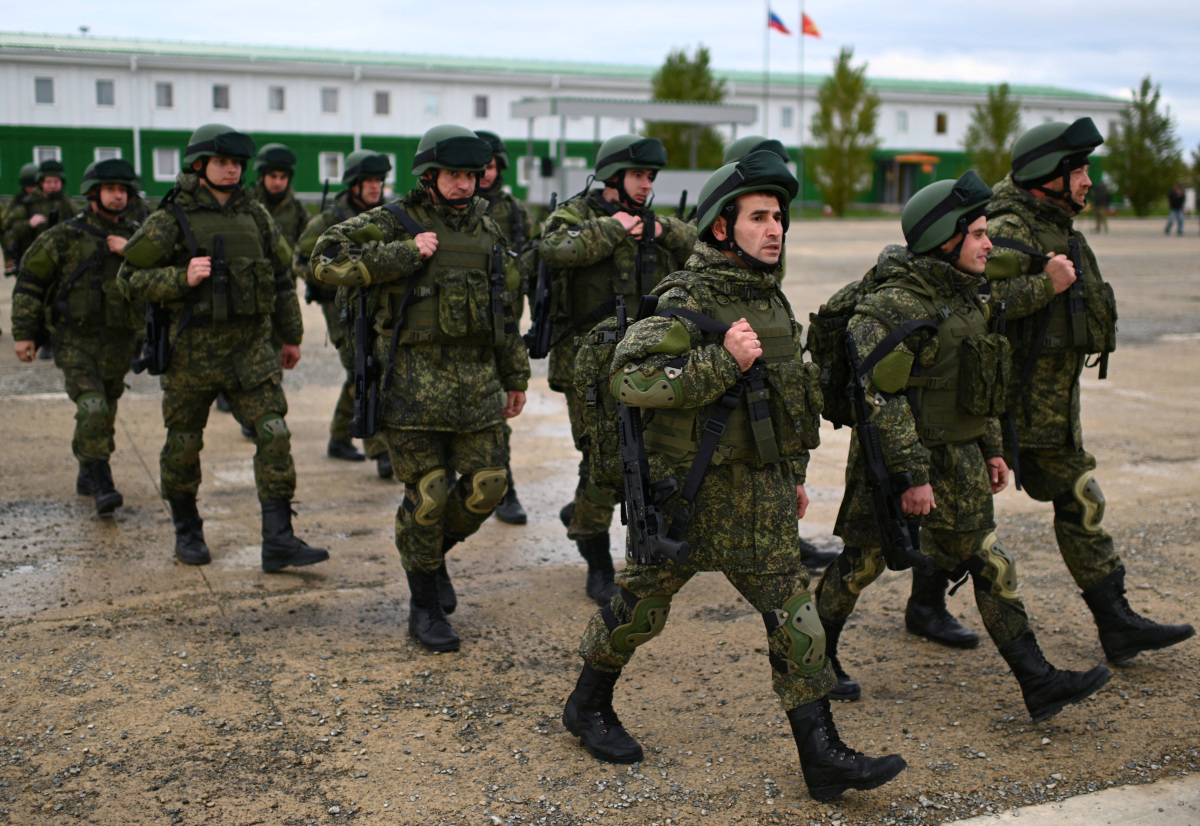Reuters
Russia is ready to introduce electronic military draft papers for the first time in its history in an effort to make it harder for men to avoid being drafted after the lower house of parliament gave its backing to the move.
The State Duma, the lower chamber, gave its backing to the necessary legislation in two separate votes. Some lawmakers complained the changes were being rushed through without giving them enough time to scrutinise the changes.
The move is part of a push by Moscow to perfect a system it has used to bolster its military forces in Ukraine, though government officials say there are currently no plans to compel more men to fight in Ukraine.
Russia says it mobilised just over 300,000 men last year to help it prosecute what it calls its “special military operation,” but is now focused on trying to recruit professional volunteer soldiers via an advertising campaign.
“We need to perfect and modernise the military call-up system,” Kremlin spokesman Dmitry Peskov told a news briefing on Tuesday, in which he also recalled “problems” experienced last year with the mobilisation campaign.
The initial decision to introduce mobilisation for the first time since World War Two prompted tens of thousands of draft age men to flee abroad, while some protests broke out – and were swiftly suppressed – in multiple Russian cities.
NO SECOND MOBILISATION
Peskov dismissed suggestions that the digitalisation plans might spark a further wave of panic and emigration among young male Russians keen to avoid having to fight in Ukraine.
“(This plan) is not connected to mobilisation,” he said, repeating previous assurances that there were no plans for a second wave of mobilisation.
Under the current system, men targeted by military recruiters are given paper summons at their registered addresses.
Recruiters have sometimes struggled to deliver the papers and to know if they have the right address for a draftee.
Under the new proposals, summons would be sent electronically to a potential draftee’s personal account on the main government portal. They would be considered delivered as soon as delivered electronically.
Once the electronic summons is received, under the legislation, citizens who fail to show up at the military enlistment office would be automatically banned from travelling abroad.
“The summons is considered received from the moment it is placed in the personal account of a person liable for military service,” Andrei Kartapolov, chairman of the Russian parliament’s defence committee, said in comments on television.
The Kremlin last year pledged to fix “mistakes” in its initial mobilisation campaign that saw men who were ineligible for the draft due to age or medical conditions being called up to fight in Ukraine.







